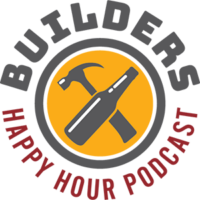We are on the leading edge of the next economic recession, defined as two consecutive quarters of negative economic growth. The Fed is raising interest rates to slow inflation, so now we have increased costs and slowing demand for goods and services. The housing industry is usually impacted the most during an economic slowdown, especially when triggered by increasing interest rates. If you have worked in the building industry long enough, you have weathered a recession or two. The last deep recession was the “Great Recession” beginning in 2008 which put the brakes on a booming building industry. Many building industry professionals lost their jobs and their businesses during that period
How can a building professional survive a recession that may blow through an economy? There are a number of business ideas that will enable a building professional to survive and even thrive during a recessionary period. Remember, during an industry contraction, the weaker competition usually drops out of the market, leaving a larger share of the market pie left for those who remain viable. There are 10 key business strategies to consider in order to help you survive an economic storm.
- Know your core strengths and competitive advantages, and focus your energy there. What makes you different from other building professionals? What are your key strategic advantages? You have a better chance of surviving a downturn if you focus on your strengths rather than your weaknesses. Consider subcontracting or hiring the talent to cover areas where you do not excel.
- Review your business plan if you have one and create a plan if you don’t. Do you have a business plan? If not, create one. A business plan does not need to be extensive and can often be limited to a single page. Most business plans contain the following elements: Vision – Mission – Goals – Strategies – Action Plans – Pro-Forma predictions and sometimes a SWOT (Strengths, Weaknesses, Opportunities, Threats) analysis. Your business plan is your map that will help you navigate through the rough seas of a recession.
- Diversify and/or add income streams. (Consider smaller accounts, broaden territory, add services). Look for complimentary products and services you can offer, such as a roofing contractor offering gutter cleaning & screening. If you have only a few large accounts, you could be vulnerable, perhaps add a few smaller profitable accounts. During a market contraction, rather than water down your target market by going after the business you are not able to serve optimally, enlarge the market geography of your target market.
- Evaluate potential bottlenecks & look for ways to become more efficient. What are the bottlenecks that are slowing you down? A bottleneck, once opened will create more productivity flow and the more competitive you will be. If you are a sole proprietor, doing everything to operate your business, consider hiring an assistant to handle the bulk of your administration, which will free up time to sell and install more projects.
- Review your current contracts and service agreements to ensure you are properly protected. A poorly written agreement or bid document can cost you a lot of money. Make sure you fully address unstable pricing and product defects in your bid documents and agreements. Make sure you address supply-chain and market pricing issues with Force majeure and escalation clauses.
- Clean up your accounts receivables and solidify your lien rights. The first sign of a struggling business shows up in cash-flow problems. One way to ensure a proper flow of revenue is to tighten up your accounts receivables and aggressively pursue past-due accounts. Make sure you have lien rights in place for leverage. Cash is king, so consider offering cash or early-pay discounts.
- Reduce your overhead. Cut the “fat” and keep the operational “muscle”. During rough seas, a sea captain will look for ways to lighten the ship’s load so it will ride higher to prevent it from taking on water. Similarly, a business can lighten its load by cutting unnecessary costs, achieving a larger cash cushion and often enhanced profitability. If an expense has a direct impact on growing revenue, it may be an expense to maintain.
- Pay-off debt and deleverage as much as possible. With increased interest rates, cheap money is going away. Look at all you leveraged positions and consider liquidating debt that does not support your growth and operational objectives. Remember, cash is the life-blood of any business, so don’t drain all of your cash reserves just to pay off debt.
- Build cash reserves and secure a line of credit to level fluctuations in cash-flow. It may seem contradictory to the previous point, but many businesses go through short-term and long-term business cycles. Having adequate cash reserves or a line of credit that you pay off during a positive business cycle is good business.
- Continue to market and fill your business “funnel”. When a recession hits, many businesses cut back on marketing activity often to their detriment. A better strategy is to maintain and even grow your marketing efforts, which could create business growth and greater market share. The key is to make sure you are targeting profitable business and marketing to your market’s needs, wants and fears.
Consider employing some or all of these useful strategies to help you navigate your business through the next and forthcoming recessions. Good luck!

